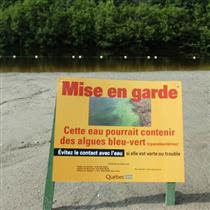Treehugger

What’s the Big Deal?
Washing dishes uses water, energy, chemicals, as well as your valuable time, so an efficient approach can save a lot of each. Since dishwashing machines are the norm for the majority of people, most of our tips will be for these. Large appliances like dishwashers account for a huge chunk of your home usage, but if used properly and maintained, a dishwasher can be more environmentally friendly than hand washing. Here are ten tips and some more in-depth knowledge to keep that dishwasher running green.
1. Go for the full load
Before running the dishwasher, wait until you have a full load (same rule of thumb for the clothes washer). This will help make the most of the energy, water, and detergent the machine uses.
2. Choose your washer wisely
Choose a dishwasher that is rated for energy and water efficiency. In the US, you can start by looking for Energy Star rated appliances, which use 25% less energy than the mandated minimum. Also, know how to read the yellow EnergyGuide sticker you’ll find on all new dishwashers--as well as other appliances.
3. Join the clean plate club
Go for dishwashing liquid and powder that is natural, biodegradable, and free of petroleum and phosphates. Also look for products sold in bulk to save on packaging. Powdered detergents are lighter and so require less energy to ship. For more, see How to Green Your Cleaning. If you are running into spotting problems using phosphate-free detergents, try using a natural residue eliminator like Wave Jet.
4. Skip the pre-rinse
Most dishwashers today are powerful enough to get the all the gunk off, so a lot of pre-rinsing by hand is often just a waste of water and time. Plus, if you rinse all of the dirt off, your dog will have nothing to lick while you’re throwing those plates in.
5. Turn down the heat
Most modern dishwashers have booster heaters to heat the water that comes from your home’s water tank. Seems pretty redundant, right? Turning the water tank’s thermostat down to 120 degrees results in additional energy savings without compromising on cleanliness.
6. Air dry
Instead of letting your washer use electric heat or a fan to dry the dishes, just open the door at the end of the washing cycle and let them air dry. Leave the dishes to dry overnight and they’ll be ready for you when you wake up.
7. Picking the right size
Choose the size model that fits your needs. A compact model is more efficient than a large one unless you have to run it several times a day. For a single person, this might be just right.
8. One glass fewer
Using fewer dishes and utensils over the course of the day means doing fewer loads in the dishwasher, saving energy, water, and detergent.
9. Keep those large appliances away from each other
Putting your dishwasher next to your refrigerator will make the fridge have to work harder due to the heat coming off the washer.
10. Off-peak washing
Delay the start of your dishwasher for off-peak utility hours (some units have timers that will start the cycle at a programmed time). Some utilities even offer reduced rates for energy used during this period, and this is likely to become more and more common in the US.
all helpful hints, but remember:
While phosphates are no longer permitted in laundry detergents in the US, they are still allowed in automatic dishwashing soaps (some states differ on the legally acceptable levels). Phosphates are additives that fight the effects of the minerals found in tap water—the minerals that cause hard water and the related spotting on dishes. Phosphates, however, also come from the same family of chemicals commonly used by farmers to fertilize crops. When phosphates wind up in waterways like rivers and coastal areas, they can “fertilize” algae populations, leading to large algal blooms which in turn can choke out plant and animal life in aquatic ecosystems. This is called eutrification, and along with agricultural runoff, can contribute to aquatic dead zones.
...so hand wash your dishes as much as possible!
While phosphates are no longer permitted in laundry detergents in the US, they are still allowed in automatic dishwashing soaps (some states differ on the legally acceptable levels). Phosphates are additives that fight the effects of the minerals found in tap water—the minerals that cause hard water and the related spotting on dishes. Phosphates, however, also come from the same family of chemicals commonly used by farmers to fertilize crops. When phosphates wind up in waterways like rivers and coastal areas, they can “fertilize” algae populations, leading to large algal blooms which in turn can choke out plant and animal life in aquatic ecosystems. This is called eutrification, and along with agricultural runoff, can contribute to aquatic dead zones.
...so hand wash your dishes as much as possible!






Aucun commentaire:
Publier un commentaire